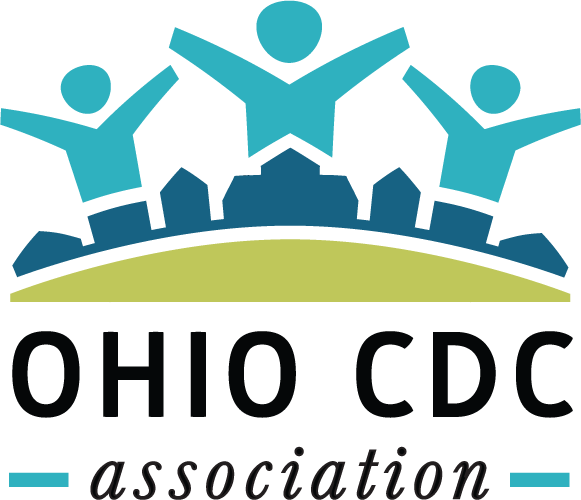This was originally published in the August 31, 2021 Newsletter.
State News
Investing in Ohio through Brownfield Remediation
For the first time in more than a decade, Ohio’s communities will have access to grant dollars to tackle brownfields that blight their communities and hinder development efforts. The Greater Ohio Policy Center created this website provide the tools and resources for those seeking to remediate and redevelop brownfields in Ohio.
2022-2023 Qualified Allocation Plan (QAP) Full First Draft Released
OHFA has posted a full first draft of the 2022-2023 Qualified Allocation Plan (QAP). The full draft incorporates feedback received since the partial first draft was released on June 24th. Comments on the second draft will be accepted through September 2, 2020. Because of the limited time frame between this second draft and the presentation of the final QAP to the OHFA Multifamily Committee on September 8, OHFA is encouraging stakeholders to limit comments to those changes made in the full draft. Stakeholders should not resubmit feedback letters that have been provided to OHFA prior to the release of the full draft. OHFA will accept comments on this partial draft through September 2nd. Comments must be sent to QAP@ohiohome.org.
Federal News
House Passes $3.5 Trillion Budget Plan
From Enterprise Community Partners: On August 24, the House voted along party lines to approve a ten-year, $3.5 trillion budget resolution. The resolution, which passed the Senate earlier this month, sets the stage for Congress to pursue a parliamentary procedure known as reconciliation, which allows the Senate to pass a measure on a simple majority vote, rather than the typical 60 votes. The Senate Committee on Banking, Housing and Urban Affairs and the House Committee on Financial Services received topline spending figures of $332 and $339 billion, respectively. The difference in levels accounts for variance in areas of jurisdiction. Some of the tax credit programs they will potentially consider include the Low-Income Housing Tax Credit (Housing Credit) and Neighborhood Homes Investment Act (NHIA), which are a couple programs prioritized in Chairman Wyden’s recently announced DASH Act, detailed in the proceeding article. It is expected that Congress will take into consideration the priorities the Biden Administration, which were laid out in their Build Back Better Agenda and the Treasury’s Green Book. House leadership included in their budget resolution a non-binding commitment to vote on the bipartisan Infrastructure Investment and Jobs Act in the House by September 27, which House Speaker Nancy Pelosi previously said would not be voted on until the Senate passed the reconciliation package with Democrats’ additional infrastructure priorities.
Advocacy Alert for Federal Housing Infrastructure
From COHHIO: Between now and Sept. 15, the Senate Banking and House Financial Services Committees are figuring out how to divvy up nearly $340 billion for housing programs. COHHIO is working with advocates from around the country through the hoUSed campaign to prioritize investments that would help bridge the gap between low wages and high rents, and increase the supply of affordable rental units.
With Sen. Sherrod Brown (D-OH) chairing the Senate Banking Committee, which oversees federal housing programs, Ohio advocates can have a real influence on the process. Here are two ways you can help us prioritize the people who need help the most - extremely low-income renters who struggled every day to maintain stable housing even before the pandemic.
Add your organization to this sign-on letter asking Congress to support the hoUSed campaign's priorities
Email Chairman Brown and your members of Congress and ask them to invest: 1) $180 billion in Housing Choice Vouchers to help an additional 2.65 million struggling households; 2) $70 billion to preserve and rehabilitate the public housing system, and; 3) $45 billion in the National Housing Trust Fund to preserve and develop housing that is affordable to the lowest income renters.
Feel free to contact COHHIO Advocacy Director Gina Wilt if you have any questions. And please let her know if you have any productive interactions with Sen. Brown or any other members of Congress.
Supreme Court Invalidates CDC Eviction Moratorium, Millions of Renters Immediately at Risk
From NLIHC: The Supreme Court, in an unsigned opinion, ruled (6-3) on August 26 to end the temporary stay on a lower court ruling seeking to overturn the federal eviction moratorium issued by the Centers for Disease Control and Prevention (CDC) on August 3. In doing so, the Supreme Court’s ruling invalidates the federal eviction moratorium, eliminating vital eviction protections that have kept millions of households stably housed. The Supreme Court decision undermines historic efforts by Congress and the White House to ensure housing stability during the pandemic. State and local governments are working to improve programs to distribute emergency rental assistance (ERA) to those in need, but they need more time; the Supreme Court’s decision will lead to many renters, predominantly people of color, losing their homes before the assistance can reach them. Read more.
Preliminary Evaluation of CDC Eviction Moratorium Shows Significant Decrease in Eviction Filings
From NLIHC: Eviction Lab released “Preliminary Analysis: 11 months of the CDC Moratorium,” an evaluation of the Centers for Disease Control and Prevention (CDC) eviction moratorium as it existed between September 4, 2020 and July 31, 2021. Using data from Eviction Lab’s Eviction Tracking System (ETS), researchers estimated that the CDC eviction moratorium alone prevented at least 1.55 million eviction filings across the country, and that state and local eviction protections prevented an additional 900,000 eviction filings throughout the country. Eviction Lab researchers observed that fewer than half as many eviction cases as normal were filed in the jurisdictions they monitored; in some jurisdictions with additional eviction moratoriums the decrease in filings was even more significant. Read more.

